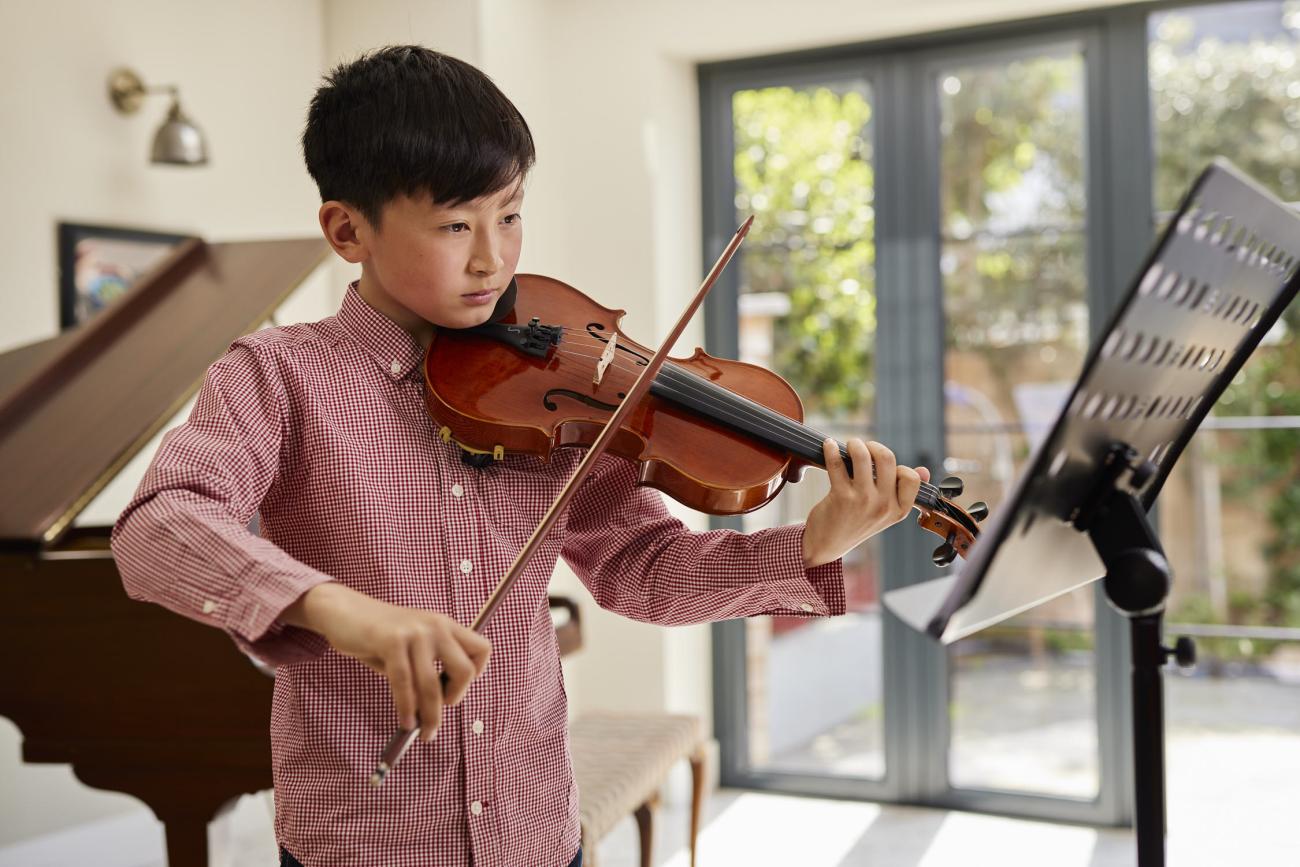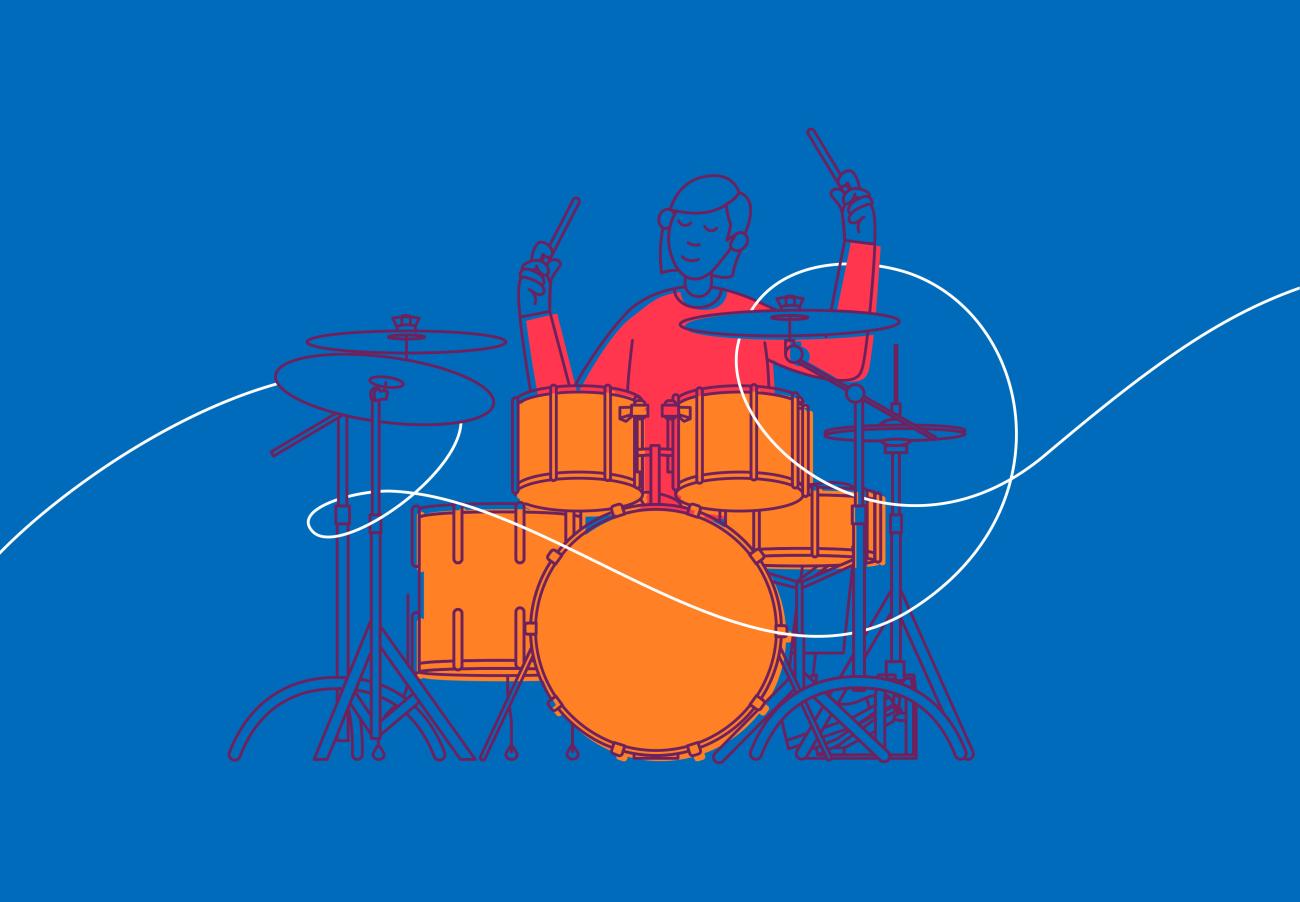Practical Grades
Practical Grades focus on all-round musical knowledge and skills, including performance. They are face-to-face exams and available for the following levels and subjects:
- Initial Grade: Piano and Bowed Strings only
- Grades 1 to 8: a wide range of instruments, singing and Singing for Musical Theatre
- Grades 1 to 5: jazz instruments (Australia, India, Ireland, New Zealand, Singapore and the UK only)
We also offer Practical Musicianship Grades that assess musical listening, reading and playing skills.
If you're looking for exams that focus purely on performance, take a look at our Performance Grades.
If you are taking a Practical Grade 6, 7 or 8 you must pass Grade 5 (or above) in Music Theory, Practical Musicianship or a Jazz Practical Grade before you book your exam, see entry requirements below.
Practical Grades are open to candidates of any age.
There are no entry requirements for Initial Grade and Grades 1 to 5.
If you are taking a Practical Grade 6, 7 or 8 you must have passed Grade 5 (or above) in one of the following subjects before you book your exam:
- Music Theory
- Practical Musicianship
- Jazz Practical Grade (Piano, Flute, Clarinet, Sax, Trumpet/Cornet/Flugelhorn or Trombone)
This is to ensure you have the all-round musical knowledge and understanding needed to successfully interpret and perform music at the higher grades.
- Exams passed from 1 January 1994 onwards – there is no need to send us your certificate as we can check our records to verify your qualification. If we are unable to verify your qualification, we will ask you to provide a copy of your certificate.
- Exams passed before 1 January 1994 – you should send us a copy of your certificate at the time of booking.
We also accept the alternative qualifications listed below.
We accept the following alternative qualifications:
- Australian Music Examination Board: Grade 5 (or above) in Theory of Music
- London College of Music: Grade 5 (or above) in Theory of Music (not Popular Music Theory)
- The Royal Conservatory of Music (Canada): both Advanced Rudiments and Basic Harmony
- Royal Irish Academy of Music: Grade 6 (or above) in Theory and Harmony
- Trinity College London/Trinity Guildhall: Grade 5 (or above) in Theory of Music
- University of South Africa: Grade 5 (or above) in Theory of Music
- Dublin Institute of Technology Conservatory of Music & Drama: Grade 5 (or above) in Musicianship
- Irish Leaving Certificate: Grade B (or above) in Music (Higher Level) and grade H3
- The Open University: A224 Inside Music
- Music Teachers’ Board: Grade 5 in Music Theory
If you would like us to consider any other qualification:
- Contact us at [email protected] at least three weeks before you book your Grade 6 to 8 exam.
- Provide a copy of your certificate and/or mark form and full details of the content of the course/qualification – for example a copy of the syllabus, a course/module transcript, examples of past papers.
- Provide a translation for any documents that aren’t in English.
- We will confirm by email if your qualification is accepted. You should send this confirmation email to us at [email protected] when you book your exam.
Pieces or songs
Three pieces or songs chosen from the repertoire lists for your grade and subject.
Scales and arpeggios
Instrumentalists prepare scales, arpeggios and other patterns listed in the syllabus. The examiner will ask you to play a selection in the exam.
Unaccompanied song
Singers perform an unaccompanied song instead of scales and arpeggios.
Sight-reading
Playing or singing a short piece that you haven’t seen before. Horn, Trumpet and Organ players at Grades 6 to 8 also take a transposition test. Jazz candidates take a quick study test instead of sight-reading.
Aural tests
Tests to assess your musical listening skills and perception, covering pitch, pulse, rhythm, melody, harmony and other musical features.


